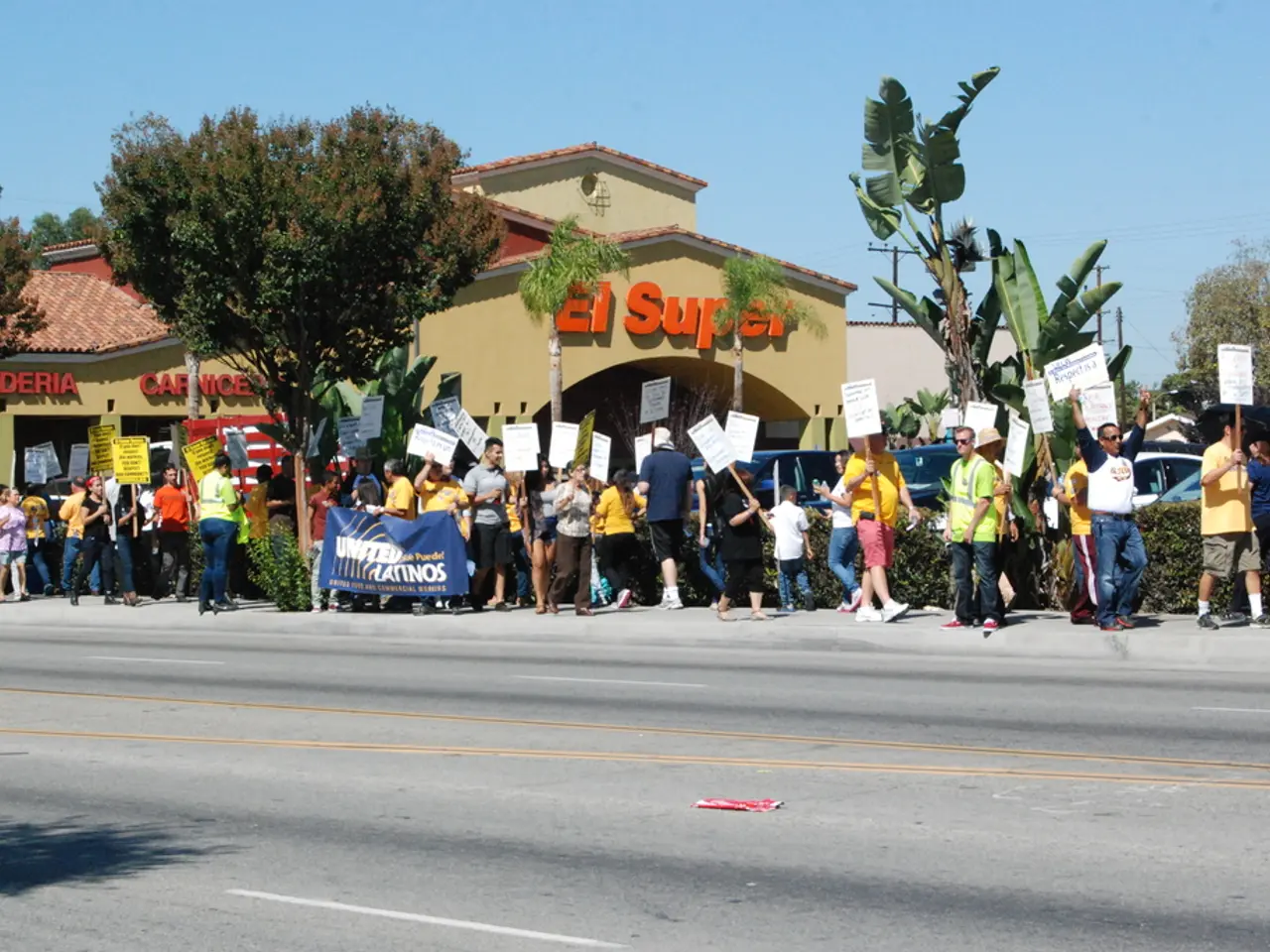Local political contests frequently overlooked: Insights on the undervalued significance of local elections
In many democracies, voter turnout in local elections is significantly lower compared to federal elections. This trend is evident in the city of Dortmund, where the mayoral election in 2020 saw a turnout of 47.05%, in stark contrast to the 80.1% turnout in the federal election of 2025.
Several key reasons contribute to this pattern. Firstly, local elections often receive less media attention and are perceived as less impactful by many voters due to their lower visibility. This lack of salience reduces motivation to participate.
Secondly, voter knowledge and engagement are often lower in local elections. The complexity of local governance structures, such as the multiple councils and administrative layers in cities like Dortmund, can make it harder for voters to follow and engage.
Thirdly, demographic factors play a role. Older and white voters, who tend to vote at higher rates in general, may be less represented among local election voters if local populations are younger or more diverse.
Structural factors also contribute to lower turnout. Some local elections are held on different dates than federal ones, which can reduce turnout due to inconvenience. Additionally, mechanisms like mandatory residency registration can affect turnout.
In the context of Dortmund and similar cities, the local governance involves complex subdivisions, which may diffuse voter attention. Urban populations can exhibit diverse political engagement levels and might feel less connected to local politics compared to national issues.
Despite the lower turnout, local politics significantly impacts the immediate living environment of citizens. Local elections address topics like traffic planning, school development, and local supply, which are only indirectly addressed at the federal level. Neighborhoods with high unemployment, low educational level, and a high proportion of people without voting rights have particularly low voter turnout.
Prof. Dr. Lars Holtkamp, a professor of politics and administration at the University of Hagen, attributes the reduced media coverage of local politics as another reason for low voter turnout. He also calls for more financial autonomy for municipalities, allowing them to implement their own projects.
New forms of participation, such as online petitions and citizen councils, are emerging outside of traditional channels. However, political interest among young people is present, but they find little space in traditional party structures. Parties need to learn to involve more people and make their structures more open to address the growing gap between citizens and local politics.
Prof. Holtkamp's research suggests that media changes and social factors have contributed to a reduction in interest in local elections among citizens. The social environment plays a significant role in voter turnout. People living in neighborhoods where few vote are less likely to do so themselves.
This trend of lower voter turnout at local elections has been observed since the 1980s. In North Rhine-Westphalia, the voting system does not allow voters to support specific candidates or parties with their vote, which may further reduce engagement.
Despite these challenges, it is crucial to encourage and facilitate political participation at the local level, as it directly impacts the lives of citizens. By understanding the reasons behind low voter turnout, we can work towards addressing these issues and fostering a more engaged and informed electorate.
[1] Lijphart, A. (1997). The Politics of Accommodation: Pluralism and Proportionality in the Netherlands. Oxford University Press. [2] Scarrow, C. (2000). The City and the Ballot Box: Urban Politics and Democracy. Routledge. [3] Verba, S., & Nie, N. (1972). Participation and the Party System: The American Case Compared with Other Western Democracies. Harvard University Press.
Read also:
- Weekly happenings in the German Federal Parliament (Bundestag)
- Southwest region's most popular posts, accompanied by an inquiry:
- Discussion between Putin and Trump in Alaska could potentially overshadow Ukraine's concerns
- Tinubu's administration allegedly causing issues within every political party as Peter Obi's name surfaces - Obidient Movement asserts








